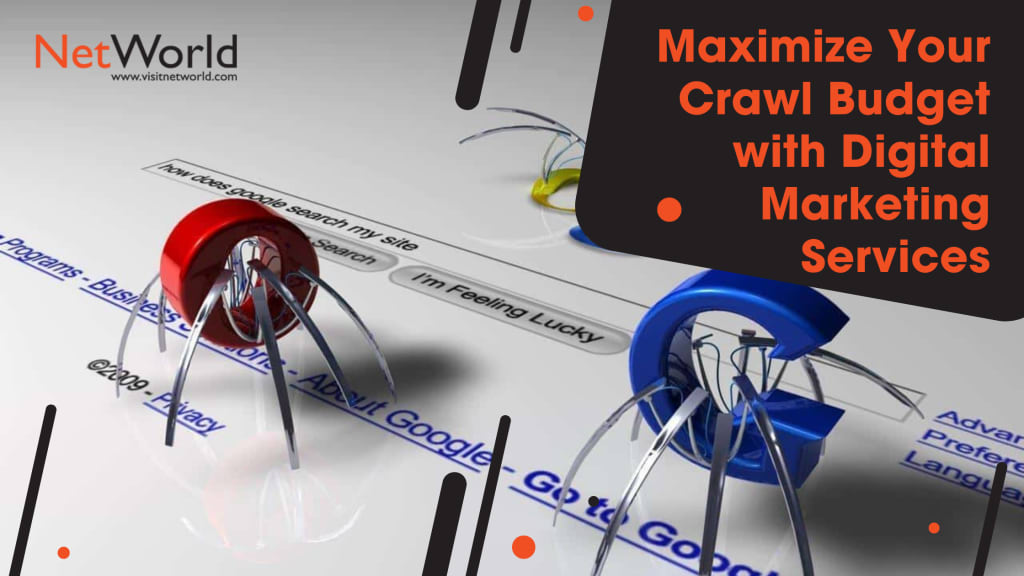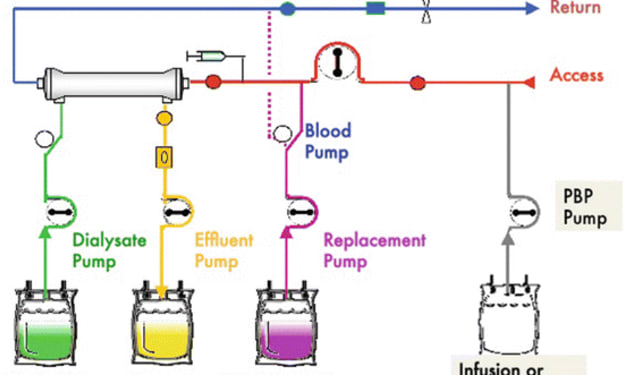Maximize Your Crawl Budget with Digital Marketing Services
Businesses can improve their search engine ranks by optimizing their crawl budgets. See how digital marketing services improve search visibility and online presence.

In the fast-paced world of e-commerce, achieving better search visibility is a paramount objective for any company offering "digital marketing services". As the digital landscape evolves, search engines have become the primary gateway for users seeking products, solutions, and services. Businesses must actively maximize their crawl expenditure to stand out in this highly competitive arena—an vital part of search engine optimization (SEO).
By understanding and effectively optimizing the crawl budget, digital marketing service providers can ensure that their web pages are efficiently crawled, indexed, and ranked, leading to improved search engine visibility and increased online success. This guide will explore the significance of the crawl budget and uncover key strategies to boost search visibility, helping digital marketing services thrive in an increasingly digital-centric world.
Let's delve into the essential techniques to elevate your online presence and drive sustainable growth in digital marketing services.
What is a Crawl Budget?
The crawl budget is the number of web pages or URLs that a search engine crawler (a spider or bot) can and will crawl on a website within a given timeframe. In other words, it represents the resources allocated by search engines, like Google, Bing, or others, to crawl and index a website's content. Search engine crawlers regularly visit websites to discover new or updated content, which they index in their databases. This process enables search engines to provide relevant and up-to-date results when users search queries.
What is the Crawl Rate?
The crawl rate, also known as crawl speed or crawl rate limit, refers to the speed at which a search engine Crawler (bot) accesses and crawls the pages of a specific website. It represents the number of requests the search engine makes to the website's server in a given period, usually measured in requests per second (RPS) or pages crawled daily. The crawl rate for each website is determined by sophisticated algorithms used by search engines such as Google and Bing.
Why is Crawl Budget Important for SEO?
A crawl budget is crucial in discovering and indexing web pages, especially for websites offering "local SEO services." When crawler bots have limited resources, ensuring that all relevant pages are efficiently identified and indexed is critical.
If Google fails to index a page, its chances of ranking for any search query diminish significantly. Therefore, managing the number of pages to align with the crawl budget is imperative for websites offering SEO services. Doing so gives each page a better chance of getting indexed, increasing the chances of ranking prominently on Google and attracting local search visitors. The ability to maintain a well-optimized and crawl-friendly website becomes the key to success in the sector of local SEO services.
How does a Crawler work?
A web crawler, often referred to as a spider, may sound intimidating, but it is a valuable asset to website owners and users. Its primary function is to navigate the vast expanse of the internet, traversing from one link to another to discover fresh content or new web pages. Once it encounters a new page, it performs a crucial task – copying the page's information and storing it in its index. Google's algorithm later processes
How to Optimize Your Crawl Budget?
Optimizing your crawl budget is a gradual and ongoing process that requires patience and diligence. While there may be hurdles, the instructions below will help you through the processes for more efficient crawl budget management.
1. Improve Site Speed
Site speed is critical in determining how efficiently search engine crawlers navigate and index your web pages. A slow-loading website can exhaust your crawl budget as crawlers wait longer for pages to load, limiting their ability to explore other important pages. To enhance site speed, consider the following:
- Optimize Images: Compress and resize images without compromising quality to reduce file size and improve loading times.
- Enable Browser Caching: Leverage browser caching to temporarily store certain elements of your website on users' devices, allowing faster subsequent page loads.
- Minimize HTTP Requests: Reduce the number of requests made to the server by combining CSS and JavaScript files and leveraging CSS sprites.
2. Internal Linking
Strategic internal linking is a powerful way to effectively guide search engine crawlers through your website. Providing clear and logical links between your pages ensures crawlers can easily discover and index all essential content. Here's how to optimize internal linking:
- Create a Logical Site Structure: Organize your website into relevant categories and subcategories, ensuring a clear hierarchy that reflects the importance of each page.
- Use Descriptive Anchor Text: Incorporate descriptive and keyword-rich anchor text for internal links, as it helps crawlers understand the content of linked pages.
- Fix Broken Links: Regularly check for and fix broken links, as they can hinder crawlers from properly navigating your website.
3. Avoid Duplicate Content
Duplicate content can confuse search engine crawlers and dilute the value of your website in search rankings. Addressing duplicate content issues ensures that crawlers focus on indexing your original and valuable content. Here are some essential steps to avoid duplicate content:
- Canonical Tags: When numerous versions of the same content exist, use canonical tags to indicate the preferred version of a page.
- 301 Redirects: Implement 301 redirects to redirect users and crawlers from duplicate or outdated pages to the correct, preferred versions.
- Set Preferred Domain: Choose a preferred domain (with or without the "www" prefix) and set up redirects to ensure all traffic reaches the chosen version.
What Factors Impact the Crawl Budget?
Several factors can have a detrimental impact on the crawl budget of websites, especially for those seeking "organic SEO services." It is essential to steer clear of the following to maintain an efficient crawl budget and maximize search engine visibility:
- Pages with Thin or Little Content
Having pages with sufficient or thin content can help crawl budget optimization. Search engines prioritize crawling and indexing pages with valuable and substantial content.
- Slow Load Time
A slow-loading website can exhaust the crawl budget, as search engine crawlers need help to navigate pages efficiently. Optimize website speed by optimizing images, activating browser caching, and leveraging content delivery networks (CDNs) to enhance load times.
- Stale Content
Outdated or stale content may discourage search engine crawlers from revisiting your website frequently. Regularly update your content with fresh and relevant information to maintain an optimal crawl budget.
- Hacked Pages or Pages with Viruses
Hacked pages or those infected with viruses can negatively impact your website's reputation and crawl budget. Monitor your website for security flaws regularly and remedy any security breaches immediately.
- Pages with Broken Links
Pages containing broken links hinder the crawling process as crawlers encounter dead ends. It is critical to check for broken links as soon as possible and to fix them regularly.
Related Posts: Boost Your Google Ranking with These Expert SEO Strategies
The Bottom Line
Understanding and optimizing your crawl budget is vital for achieving better search visibility, particularly for the success of a professional SEO company. An SEO company may ensure that its web pages are crawled, indexed, and ranked by search engines by managing the factors that influence the crawl budget, such as enhancing site speed, adopting effective internal linking, and avoiding duplicate content. This proactive approach enhances the website's chances of ranking higher in search results and contributes to attracting more relevant organic traffic.
About the Creator
Mark Greenwood
At Networld, I work as a Digital Marketing Executive. We are the leading digital marketing company in the USA. We offered web design, web development, and digital marketing services. Please contact us for more information.
Enjoyed the story? Support the Creator.
Subscribe for free to receive all their stories in your feed. You could also pledge your support or give them a one-off tip, letting them know you appreciate their work.






Comments
There are no comments for this story
Be the first to respond and start the conversation.